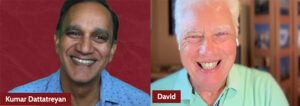Leaders set the tone. How we show up has a big impact on those we lead. Showing up at your peak performance helps ensure that you show up the best you can be for all those around you. To achieve your peak personal performance focus on these areas in your life.
Rhythm
Olympic athletes train to the same schedule every day. To achieve peak performance, they go to bed at the same time, get up at the same time, have similar types of activities at the same time every day. They work with their coaches to discover and keep to a fixed rhythm that ensures they will be at their very best when they are in Olympic competition.
If you want to achieve peak performance, you need to think like an Olympic athlete. When is the best time for you to get to bed? Do you stick to that schedule? Are you getting enough sleep every night and waking up at the same time every day?
Exercise
I exercise six days a week first thing in the morning. My exercise varies and includes time with my small cross training group at the gym, spin classes, bike riding, running, or even just walking. The photo above was taken on an early morning walk around Lost Lake in Whistler, BC. Not only do I get the solitude and stillness of the early morning—exercising to start my day powers me up to be at my best.
Interruptions
As leaders, people come to us for advice. I believe true leadership is empowering people to be able to make their own decisions.
How do you handle email? Do you block off three fixed time periods a day and limit yourself to these periods? Or do you reach for your smartphone and start fighting fires before you get out of bed in the morning? I have learned that for me to be at my peak and available, I ignore emails until after my morning journaling, breakfast, and exercise. I also try to limit email to three fixed 30-minute blocks during the day.
Think Time
As leaders, we are expected to take our considerable skills and use them to come up with strategies to move our organization forward. The activities we do should be high value to helping the organization achieve its strategic goals. What time do you set aside for this strategic thinking and critical activities? My experience is that back-to-back meetings and constant interruptions leave no time for doing the important work that I must do to maximize my and the organization’s chance of achieving their goals. Do you block out time in your calendar for this?
Transition
My brother-in-law is a steam pipe fitter. He always says to me “hang the tool belt on the tree outside when you enter the house.” I think this is wise advice—our minds and bodies need a break from work in order to both rest and let our subconscious work away on the problems we are trying to solve. In our 24-hour a day environment, it takes intention and discipline to separate your workday from the rest of your day.
How do you mark the end of your workday so that you can fully transition to the rest of your life? Do you write down your to-do list for tomorrow before you finish your workday? I always make it a policy to never read work email outside of work hours, while making sure that the senior management team and all my first reports know that in an emergency they can text or call my mobile phone. When you do this, almost all so called emergencies disappear.
Daily Habits
Everything I’ve talked about in this post center around your daily habits. Focus on the start and end of day, the transitions to and from work, and the boundaries that you need in place every day so that you can show up with your peak performance. You owe it to yourself and to those you lead.




